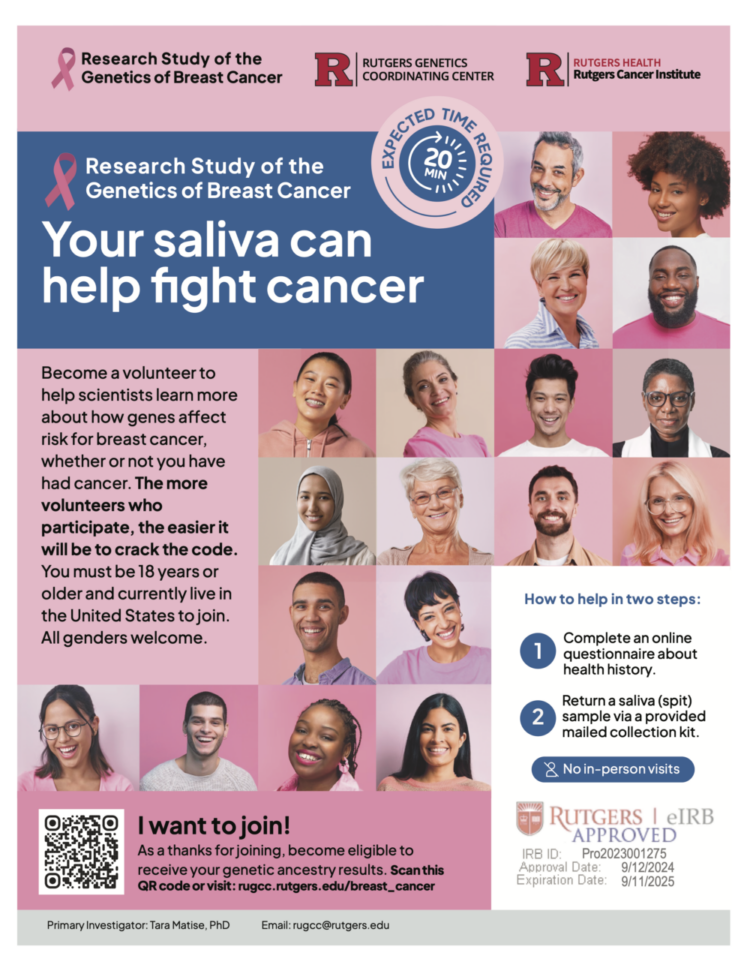You may have heard about the breast cancer risk genes BRCA1 and BRCA2, but you might not know that they explain only about 25% of the genetic cause of breast cancer. Understanding more about the genetic basis of breast cancer is a crucial step in drug development to improve current treatment options.
Researchers at Rutgers University, the State University of New Jersey, have teamed up with the company Regeneron Pharmaceuticals to launch a large study of the genetics of breast cancer that is easy to participate in. No office visit is required. Instead, there’s an easily accessible set of questions to answer (that will take about 15 minutes), combined with returning a “spit kit” that will be mailed to participants. Participants will not be compensated, but may opt to receive comprehensive information on their genetic ancestry at no cost. Participants who wish to may take part in additional surveys, and participants who wish to may make parts of their electronic medical records available to enhance the study’s data.
We are looking both for women and men and people who have had breast cancer and people who have not.
F.A.Q. (Frequently Asked Questions)
Breast Cancer Study Newsletters
Right-click to download our flyer: Study Flyer
